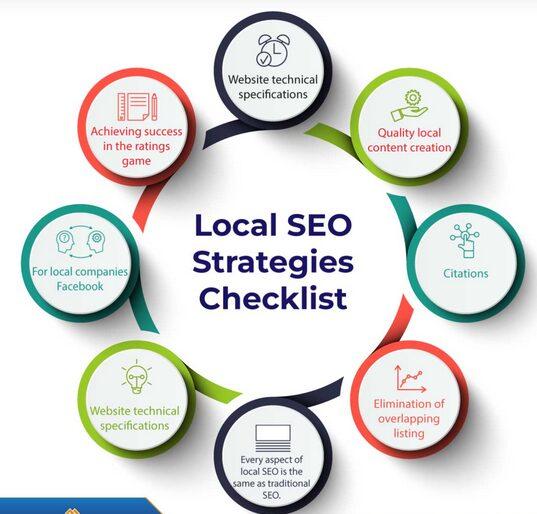As you explore contemporary fiction, you can’t ignore the importance of diverse voices that shape our understanding of the world. Authors like Chimamanda Ngozi Adichie and Tommy Orange challenge your perceptions and invite you to confront complex themes of identity and belonging. These narratives do more than entertain; they push for inclusivity and representation, sparking critical conversations about our shared humanity. But what challenges do these writers face in bringing their stories to light? The answers might redefine how you think about literature today.
Importance of Diverse Narratives
Recognizing the importance of diverse narratives enriches our understanding of the world. When you engage with stories from various cultures, backgrounds, and perspectives, you open yourself up to experiences that challenge your assumptions and broaden your horizons.
These narratives don’t just add color to literature; they reflect the complexities of human experience, allowing you to empathize with characters who might be different from you.
Diverse narratives foster inclusivity and representation, ensuring that voices historically marginalized are heard and valued. You’ll discover that these stories often tackle issues of identity, belonging, and resilience, resonating deeply with your own experiences or expanding your awareness of others’.
By reading widely, you learn to appreciate the richness of the human condition, which empowers you to navigate a world filled with diverse viewpoints.
Additionally, embracing diverse narratives can lead to critical discussions about societal norms and injustices. They provide a platform for dialogue that can inspire change in your community.
Ultimately, by prioritizing diverse voices in your reading list, you actively contribute to a more understanding and compassionate society, enriching not just your own life, but the lives of those around you.
Key Authors to Explore
When diving into contemporary fiction, you’ll encounter a wealth of voices that offer fresh perspectives and powerful stories. To truly appreciate this literary landscape, it’s essential to explore key authors who are shaping the genre.
Start with Chimamanda Ngozi Adichie, whose works like “Americanah” tackle themes of identity and belonging. Her insightful narratives resonate with readers from diverse backgrounds.
Next, check out Ocean Vuong, whose poetry and prose, especially in “On Earth We’re Briefly Gorgeous,” explore love, trauma, and the immigrant experience with lyrical beauty.
Don’t overlook Celeste Ng, whose novels like “Little Fires Everywhere” delve into race, privilege, and family dynamics, sparking vital conversations.
Another author worth your time is Tommy Orange, whose debut “There There” presents a multifaceted view of Native American identity in a contemporary setting.
Impact on Reader Perspectives
Through the lens of diverse voices in contemporary fiction, readers gain profound insights into experiences that may differ from their own. When you dive into stories told by authors from varied backgrounds, you uncover perspectives shaped by culture, identity, and circumstance. This exposure broadens your understanding of the world, challenging preconceived notions and enriching your empathy.
As you engage with these narratives, you might find yourself relating to characters whose lives seem worlds apart from yours. This connection fosters a sense of shared humanity, reminding you that everyone has their own unique story. You may discover that their struggles and triumphs resonate with your own, creating a bridge between experiences.
Moreover, these diverse stories can spark critical conversations about societal issues, prompting you to reflect on your beliefs and biases. They encourage you to question the status quo and consider alternative viewpoints, ultimately empowering you to become a more informed and compassionate individual.
In the end, the impact of contemporary fiction enriched by diverse voices goes beyond entertainment; it transforms your perspective, urging you to see the world through a more inclusive and understanding lens.
Challenges Faced by Diverse Writers
Diverse writers often grapple with a range of challenges that can hinder their ability to share their stories. One major hurdle is the lack of representation in publishing. You might find it difficult to get noticed amidst a sea of voices that don’t reflect your experiences. Publishers often prioritize mainstream narratives, leaving little room for diverse perspectives.
Additionally, you may face stereotypes or misconceptions about your identity, which can shape how your work is received. Critics might box you into categories, expecting you to write only about specific themes tied to your background, stifling your creative freedom.
Financial barriers can also play a significant role; the unpredictability of income from writing often makes it hard to sustain a career. You might feel pressured to conform to commercial trends, sacrificing authenticity for marketability.
Moreover, networking can be challenging due to systemic biases within the industry. Building connections with mentors or fellow writers who underst YouTubeブック your journey can feel daunting.
These obstacles can weigh heavily on your spirit, but recognizing them is the first step toward overcoming them. Your voice matters, and the world needs to hear it, despite the challenges you face.
Future of Diverse Literature
The future of diverse literature looks promising, as more readers and writers are embracing stories that reflect a wide array of experiences. You’ll notice a shift in the industry where diverse voices are not just welcomed but sought after. This change is fueled by a growing recognition that representation matters, leading to richer narratives and broader perspectives.
To illustrate this evolution, consider the following table showcasing the increasing representation in contemporary literature:
| Year | Percentage of Diverse Authors | Popularity of Diverse Titles |
|---|---|---|
| 2018 | 15% | 25% |
| 2019 | 20% | 30% |
| 2020 | 25% | 40% |
| 2021 | 30% | 50% |
As you can see, the numbers reflect a significant increase in both the authors and the titles that resonate with diverse audiences. This upward trend isn’t just a passing phase; it’s a commitment to inclusivity that enriches the literary landscape. By supporting diverse literature, you’re not only amplifying these voices but also ensuring that future generations of readers have access to stories that inspire and connect across cultures.
Conclusion
In embracing diverse voices in contemporary fiction, you open yourself to new perspectives that challenge your understanding of identity and belonging. Authors like Chimamanda Ngozi Adichie and Tommy Orange not only enhance the literary landscape but also foster empathy and critical dialogue about social justice. As you explore these narratives, you contribute to a more inclusive world where marginalized stories are celebrated, enriching your reading experience and deepening your connection to the shared human experience.




